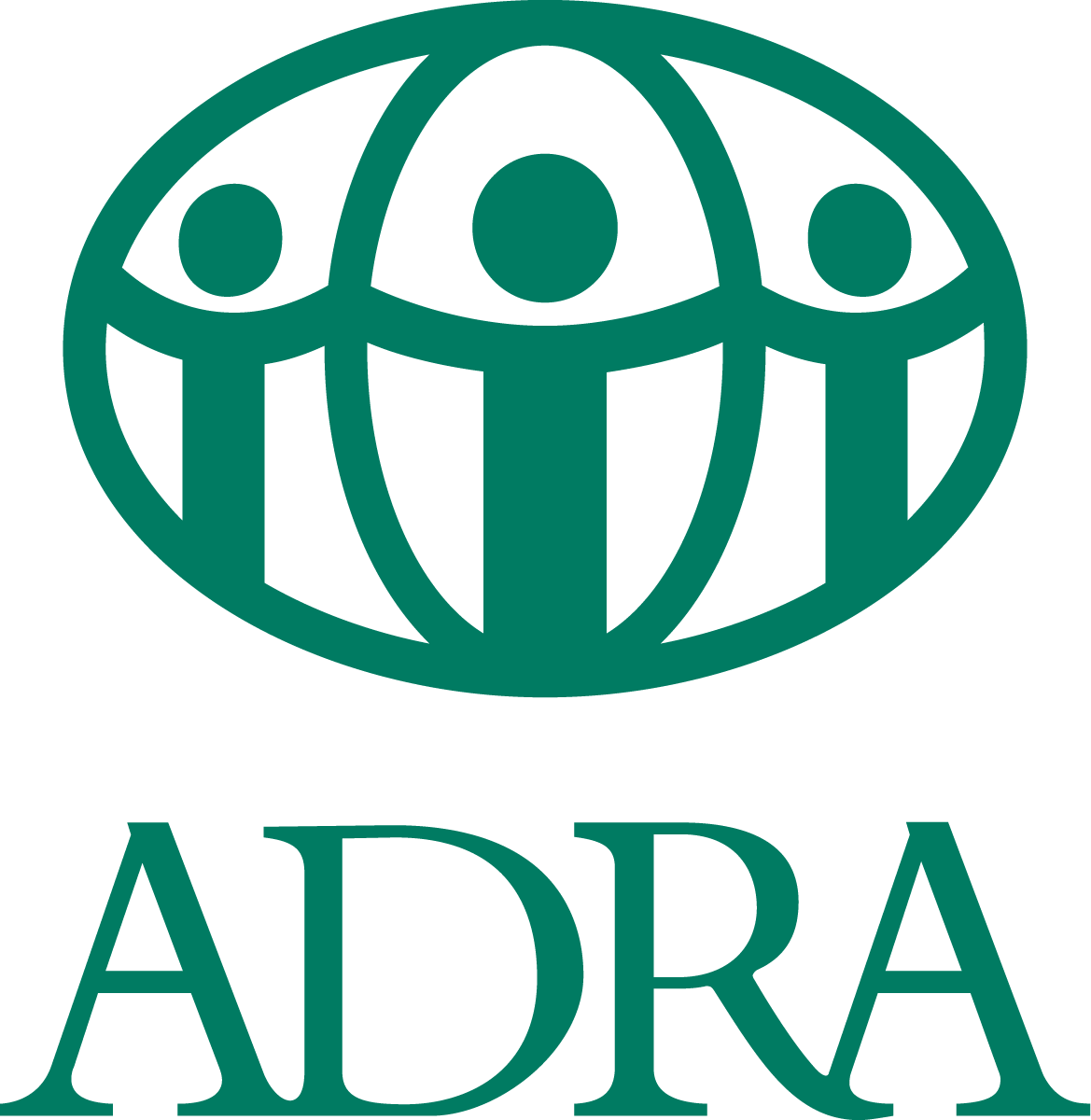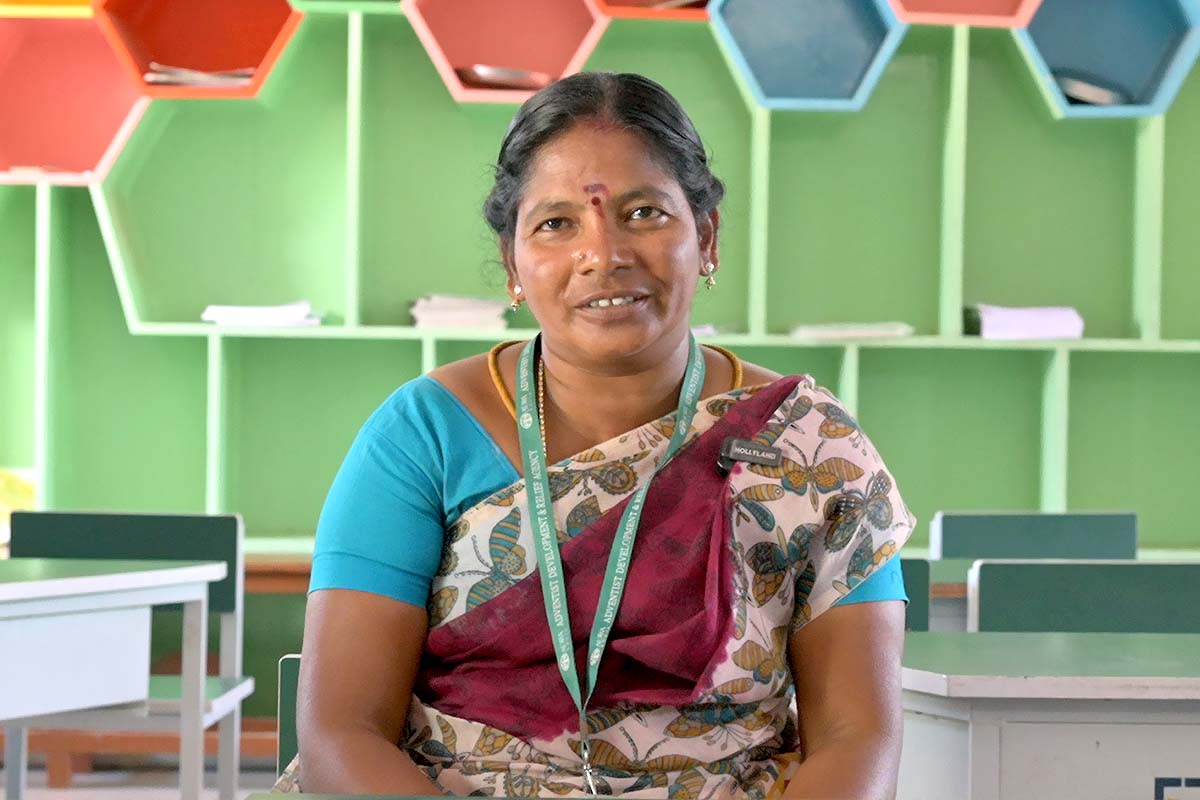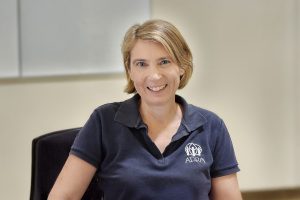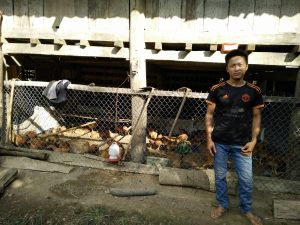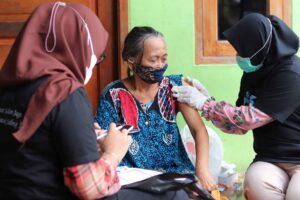In Anna Nagar, a small settlement three kilometres from Thirukandalam, the idea of schooling was once a distant thought. There were no schools nearby, and children often spent their mornings plucking flowers or helping their families earn a living. Illiteracy was not unusual—it was the norm.
Gunasundari, a resident of Thirukandalam, had once been one of those children. She later turned into a peer educator under a local initiative, teaching under a tree because there were no classrooms. When that initiative shut down, the dropout numbers soared again. But that wasn’t the end of her story.
ADRA India first entered the community during a flood response. It was a time of chaos—rivers had overflown, homes were affected, and basic needs had become urgent. During one of the visits, ADRA’s team connected with the school authorities and community leaders. It was during these interactions that Gunasundari’s name came up.
She wasn’t employed at the time, but her earlier work had left an impression. ADRA India reached out to her—not for a relief role, but for something more long-term: to bring dropout children back to school. When she started working with ADRA in 2018-19, the challenge ahead was clear. Families weren’t interested in school. They asked her directly:
“Don’t you have other work to do?”
“We need our children to pluck flowers so we can eat.”
“We can’t afford books—why should they study?”
Still, Gunasundari kept showing up. She visited homes daily, talking to parents, listening to their concerns, and gently pushing the idea of school.
Some children said they would join—but only after finishing their morning work. So she agreed. The first batch of 10 children would pluck flowers in the early hours and come to class around 10 or 11 AM.
There was no proper classroom. The Panchayat helped arrange a small room in someone’s house—no fan, no electricity, just a safe space to learn. Gunasundari kept the sessions playful and light, helping children ease into reading and writing.
Parents began to notice. “This teacher is still coming every day,” they’d say. Slowly, they began sending their children.
But learning materials were few. Children didn’t have notebooks, textbooks, or even food. One child, Murali, asked her one day:
“Miss, I’m very hungry. If I come to school, will you feed me?”
That question stayed with her. Gunasundari and her colleague Nagaraj didn’t wait for formal support. They brought rice and dal from home, cooked meals, and managed both the kitchen and the classroom.
Once the students began progressing, the goal was to mainstream them into formal schools.

ADRA India supported the initiative with a mobile classroom bus, which parked at central locations for lessons. It drew attention—eventually even from the Department of Education.
Officials were surprised to see classes being conducted inside a bus. When asked where they taught otherwise, Gunasundari explained they used the ground near the Sivan Temple—open, exposed, and often flooded during rains.
She documented everything: enrollment numbers, learning progress, attendance data. Even then, the nearby government school was hesitant. The Headmaster refused initially. Gunasundari wasn’t treated like other teachers—she was made to wait, spoken to dismissively, and denied basic cooperation.
But she didn’t stop. Eventually, her persistence paid off. The school agreed to provide a classroom. ADRA India’s bus began picking up children by 8:00 AM daily. Another teacher joined, and together they focused on building a more structured learning environment. The school staff started taking attendance seriously. Learning became regular. The children—some of whom had never held a textbook before—were finally part of a system.
By the end of it, Gunasundari had tracked and supported 45 children, maintaining individual records for each one.
What began under a tree with no roof or benches now had a classroom, a schedule, and most importantly—children who believed they belonged there.
“This is the kind of change ADRA believes in. Not just classrooms, but compassion. Not just teaching, but transformation. Because real impact begins when someone chooses to care—again and again, even when it’s hard. When the odds are high and the resources low, it’s people like Gunasundari who remind us: dignity begins with presence. And ADRA stands with those who stand for others.”
Written by: Trisha Mahajan, Communications Manager, ADRA India
An ADRA Impact Story from: ADRA India Projects
